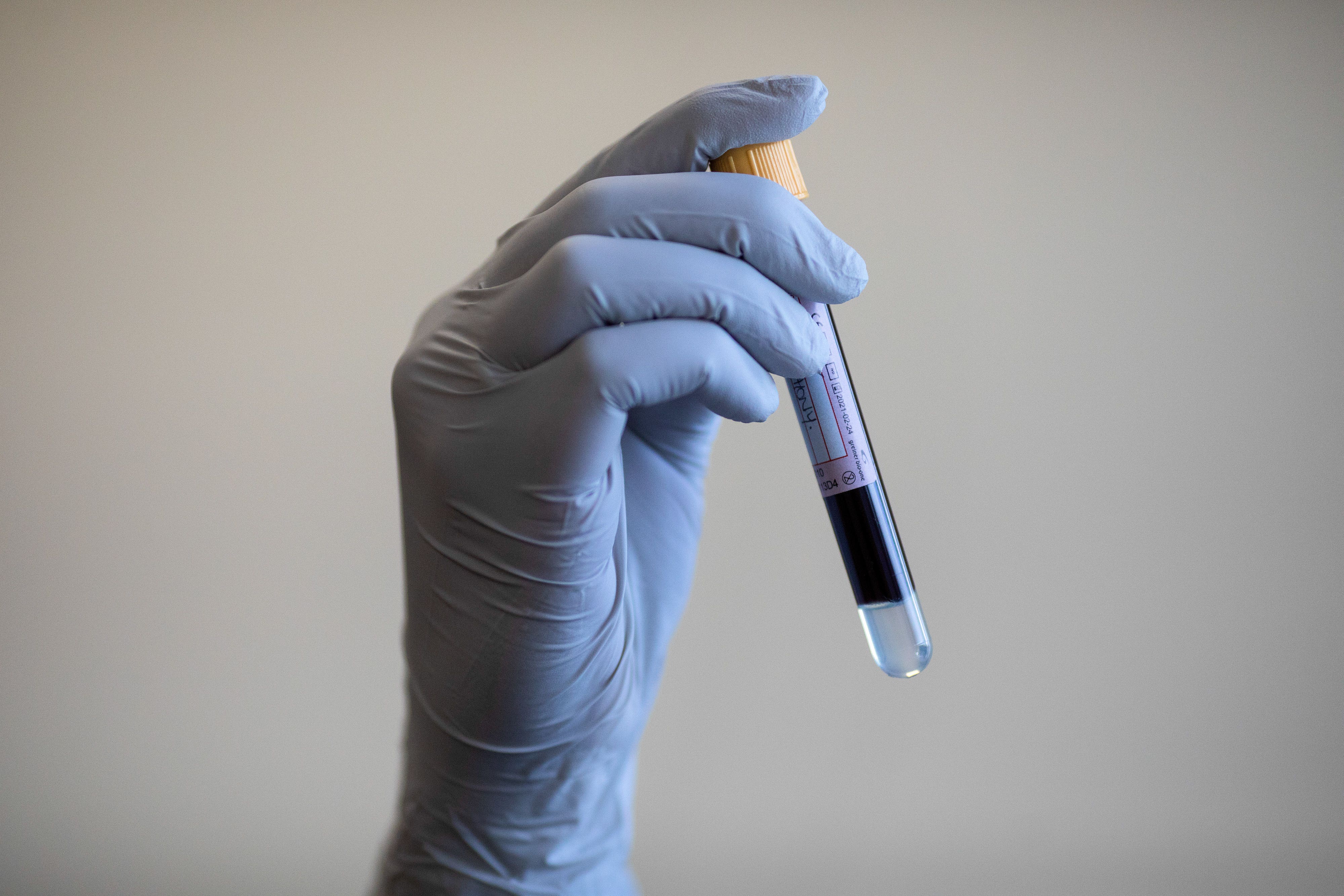Blood test to determine organ age could help predict disease risk
Researchers in the US used machine learning to measure the levels of certain proteins in the blood.

Your support helps us to tell the story
From reproductive rights to climate change to Big Tech, The Independent is on the ground when the story is developing. Whether it's investigating the financials of Elon Musk's pro-Trump PAC or producing our latest documentary, 'The A Word', which shines a light on the American women fighting for reproductive rights, we know how important it is to parse out the facts from the messaging.
At such a critical moment in US history, we need reporters on the ground. Your donation allows us to keep sending journalists to speak to both sides of the story.
The Independent is trusted by Americans across the entire political spectrum. And unlike many other quality news outlets, we choose not to lock Americans out of our reporting and analysis with paywalls. We believe quality journalism should be available to everyone, paid for by those who can afford it.
Your support makes all the difference.Using a blood test to determine the biological age of a person’s organs could help treat them before they get sick, as well as predicting the progression of conditions such as Alzheimer’s disease, researchers have suggested.
A study by academics in the US found people whose organs were ageing faster than the rest of their body had a higher risk of developing diseases in that particular organ within 15 years.
The team, led by academics from Stanford University in California, used machine learning to assess the protein levels in human blood.
The study focused on 11 key organs, organ systems or tissues, including the brain, heart, lung, kidney, liver, pancreas and intestine, as well as the immune system, muscle, fat and vasculature.
To train their algorithm, the team checked the levels of almost 5,000 proteins in the blood of 1,398 healthy patients at Knight Alzheimer’s Disease Research Centre.
If we can reproduce this finding in 50,000 or 100,000 individuals it will mean that by monitoring the health of individual organs in apparently healthy people, we might be able to find organs that are undergoing accelerated ageing in people’s bodies, and we might be able to treat people before they get sick
They ranged in age from 20 to 90, but were mostly in the mid to late stages of life.
Researchers flagged all the proteins whose genes were four times more highly activated in one organ compared with others.
They found 858 organ-specific proteins and trained the algorithm to guess a person’s age based on them.
The study’s senior author, Tony Wyss-Coray, a professor of neurology and the DH Chen Professor II at Stanford University, said: “We can estimate the biological age of an organ in an apparently healthy person.
“That, in turn, predicts a person’s risk for disease related to that organ.”
Overall, the team tested their algorithm on a total of 5,676 patients across five cohorts.
The study, published in Nature, revealed almost 20% of patients showed “strongly accelerated age” in one organ, while 1.7% showed ageing in multiple organs.
Researchers said accelerated organ ageing “confers a 20-50% higher mortality risk”.
Those with accelerated heart ageing were 250% more likely to have heart failure, while accelerated brain and vascular ageing could predict Alzheimer’s progression better than the best current blood-based biomarker.
Professor Wyss-Coray added: “If we can reproduce this finding in 50,000 or 100,000 individuals it will mean that by monitoring the health of individual organs in apparently healthy people, we might be able to find organs that are undergoing accelerated ageing in people’s bodies, and we might be able to treat people before they get sick.”
Commenting on the study, Dr Leah Mursaleen, head of research at Alzheimer’s Research UK, said: “The diseases that cause dementia – like Alzheimer’s – can begin in the brain decades before symptoms appear.
“New treatments on the horizon have only been shown to work in the early stages of Alzheimer’s, which is why we need to find simple methods to accurately identify those most at risk of developing the disease.
“This study suggests that looking at what’s in our blood can provide a vital ‘window’ to look at what’s happening deeper inside our body – including at the level of individual organs like the brain.
“It shows that markers in the blood can measure brain and blood vessel ageing and could potentially be used to predict Alzheimer’s and its progression.
“While this science is at an early stage, it has the potential to add to our growing toolkit of blood-based detection methods, many of which are edging closer to routine use.
“It’s likely that we’ll see the first blood tests for Alzheimer’s disease arrive on the NHS within the next five years.
“The development of even more accurate and less invasive methods to detect signs of age-related disease, including the earliest signs and progression of Alzheimer’s, will take us closer to curing them.
“Further work in this area is needed to develop and validate tools such as these, to help us get one step ahead of dementia.”